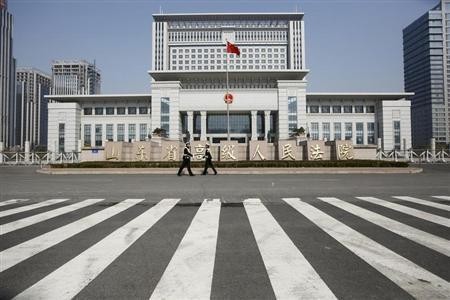Since President Xi Jinping was elected to power, China has progressively received greater levels of attention for the emphasis it has placed on the rule of law.
Some analysts have even observed the implementation of corresponding changes, including greater transparency, by governmental bodies as a first in the entirety of the nation's history.
However, even though the Chinese Communist Party (CCP) highlighted "rule of law" as the central theme of the Fourth Plenum of the 18th Central Committee in Oct. 2014, the cracks have begun to emerge.
A Xinhua editorial on Wednesday conveyed the calls from the public concerning the further steps that need to be taken in regard to government transparency in China.
While taking a balanced approach by acknowledging the steps that have been taken thus far, the publication brought some of the more eager departments down to Earth by bluntly stating: "They were just feeling too good."
So what did Chinese officials get right after committing to greater transparency last year? According to Xinhua, central departments and local governments recently released annual reports on the disclosure of information in 2014; the State Forestry Administration "honestly apologized" for a disclosure report that was published after the due date, in addition to previous "slow updates"; and the public commended the Ministry of Transport's annual report for its clarity.
The editorial then refers to Supreme People's Court data that shows that transparency issues have become a major source of lawsuits against the government in China. And, to its credit, Xinhua concludes with its recommendations for the future of governmental transparency: rules need to be devised to guide the disclosure of government information so that the exact scope of the information and how detailed it should be is predetermined; and, a third-party evaluation mechanism "is likely to be fairer and more objective than the governments' self-evaluation."
Given that Madame Tao Kaiyuan, vice president of the Supreme People's Court of China, spoke on Chinese judicial reform and the impact of rule of law in January at the prestigious U.S. policy and research non-profit, The Brookings Institution, it is a timely moment for the Chinese government to further open its ears to the public.



























